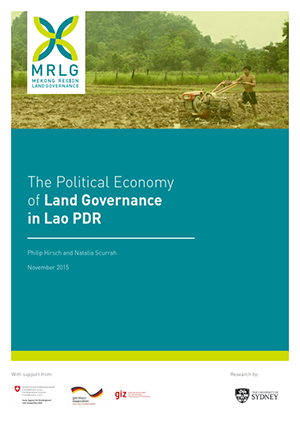Resource information
This country level analysis addresses land governance in Laos in two ways. First, it summarises what the existing body of knowledge tells us about power and configurations that shape access to and exclusion from land, particularly among smallholders, the rural poor, ethnic minorities and women. Second, it draws upon existing literature and expert assessment to provide a preliminary analysis of the openings for and obstacles to land governance reform afforded by the political economic structures and dynamics in the country.
Laos has experienced particularly rapid change from a country which was seen and promoted by its leaders as land-rich and capital-poor, and hence in need of investment, to one with growing land pressures. Among the Cambodia, Laos, Myanmar, Viet Nam (CLMV) group, Lao features as the country where land issues are most sensitive within the current political system. Openings for dialogue, establishment of effective grievance mechanisms and ground-based advocacy are most limited in Laos. Land pressures in Laos come from agro-industrial plantations and a large number of hydroelectric dams, mines and infrastructure projects that have been built, are under construction, or are planned. Together these are creating considerable land insecurity, not only among directly affected communities, but also in areas where resettlement schemes are established.
This report on Laos is one of a series of country reports on Cambodia, Laos, Myanmar and Viet Nam (CLMV) that seek to present country-level analyses of the political economy of land governance.



